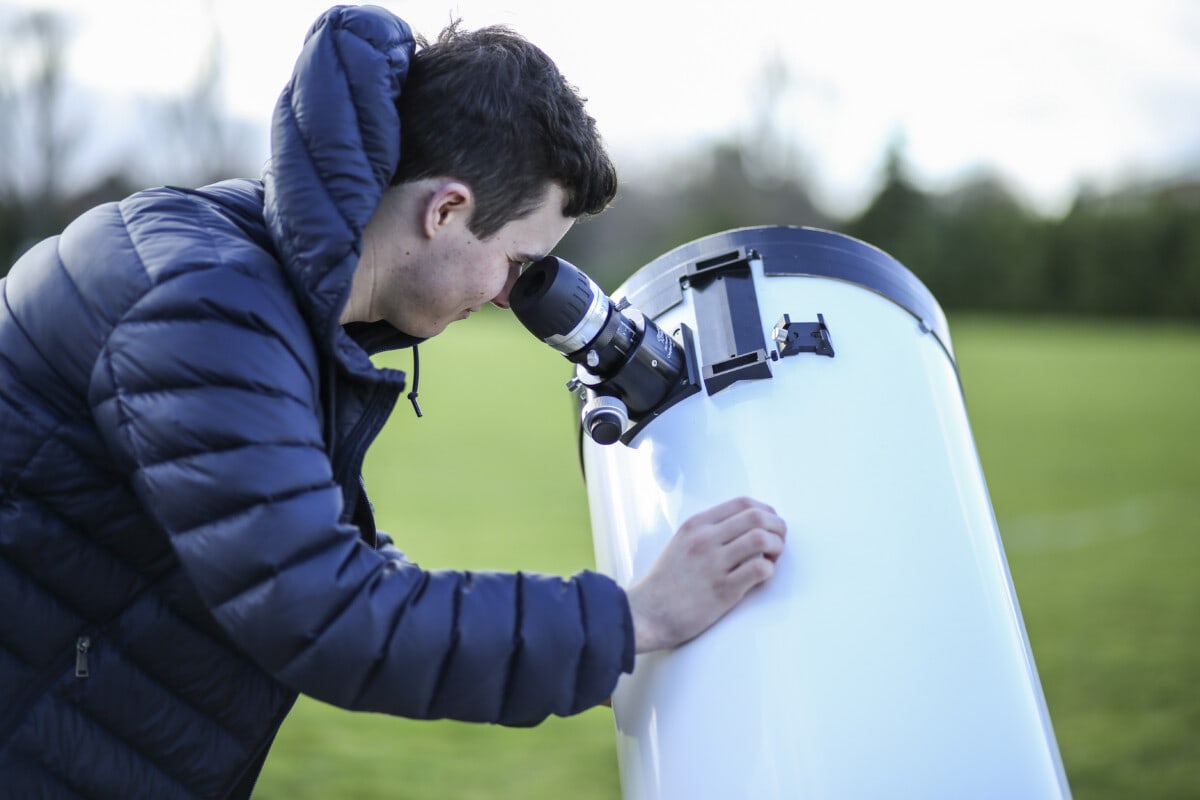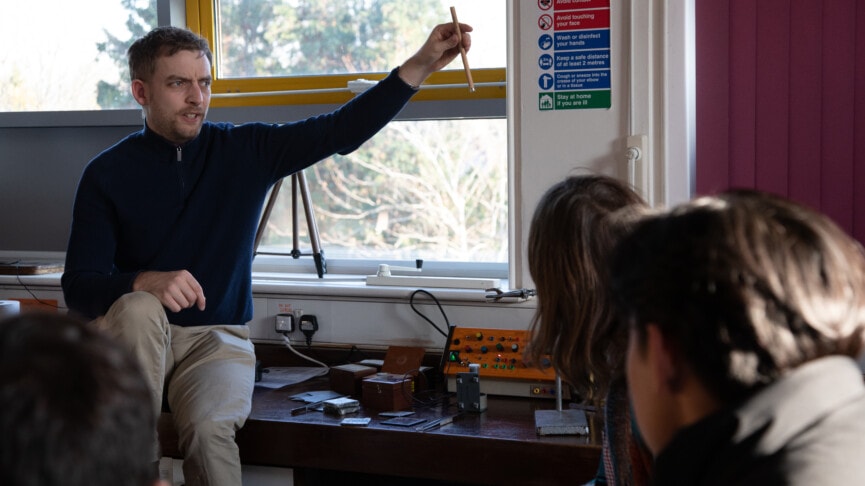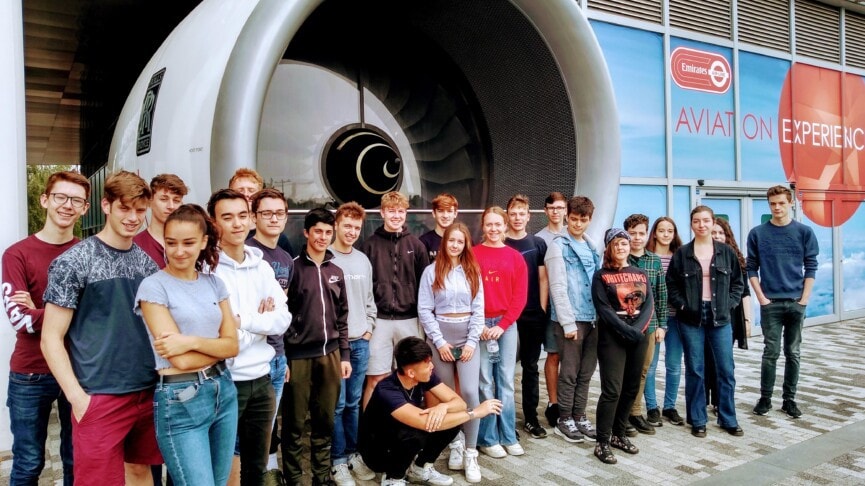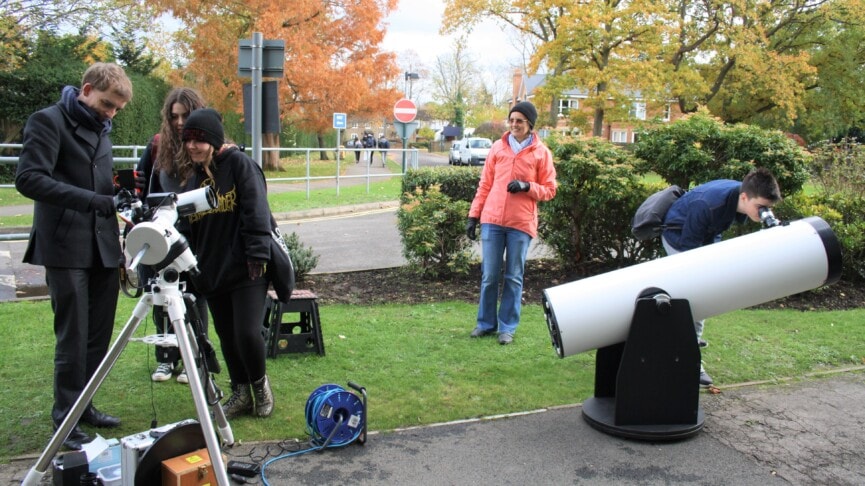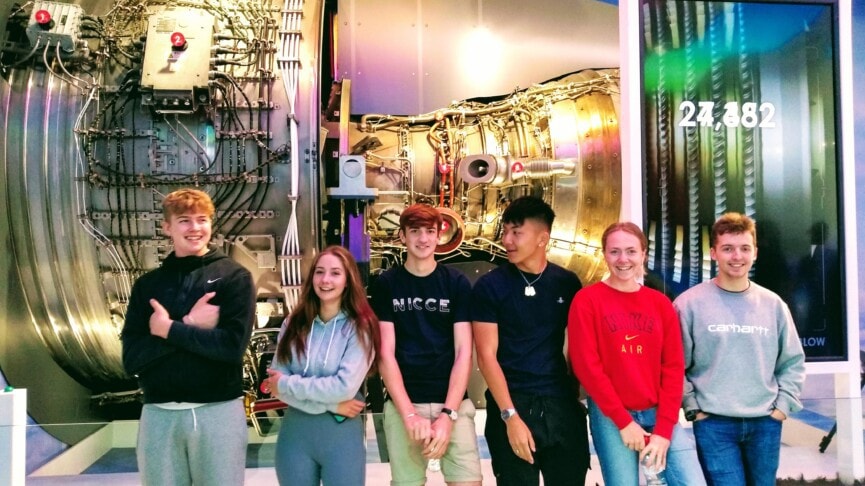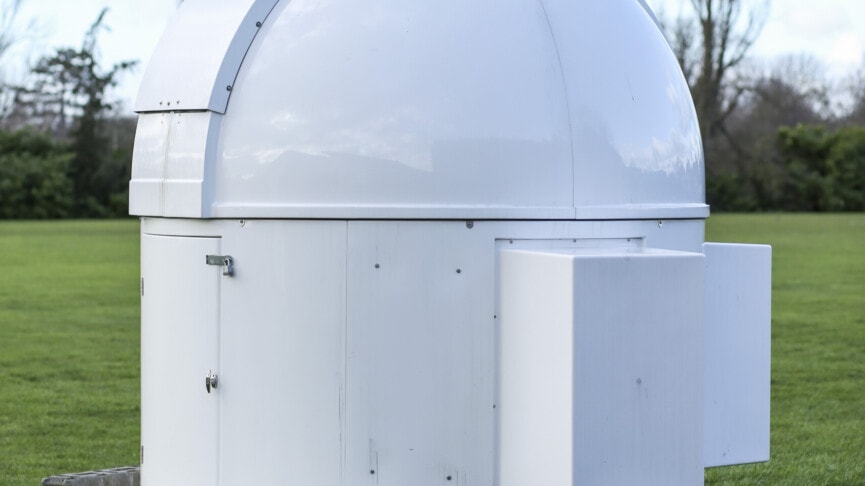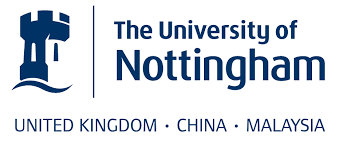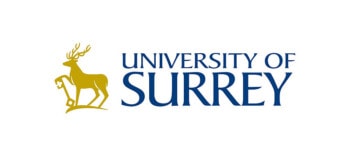Overview
Physics is about understanding how nature behaves from the smallest possible scale, deep inside the atom to the largest conceivable distance, stretching across the entire universe. You will discover how physicists use observations and measurements to devise theories and laws, which are then refined through further testing. You will examine the application of Physics to the development of a wide range of technologies.
Entry Requirements
In addition to the College Entry Requirements, to qualify for this course you will also need to achieve a minimum of:
- Grade 6 in GCSE Physics, Biology and Chemistry (or 6-6 in GCSE Combined Science). Grade 6 in GCSE Maths (Higher Level).
Course Details
The first year builds on topics already familiar to you. In the first term you will study Mechanics and Materials to develop your understanding of forces and energy and their effects on solids. You will also cover the properties and applications of waves. After the Christmas break, you will build on your knowledge of GCSE electricity and venture into the more modern fields of Quantum Phenomena and Particle Physics, introducing you to the fundamental properties and nature of matter and radiation. Your investigative and practical skills will be developed through a variety of experimental activities.
The second year builds on the first-year topics. Further work in Mechanics introduces circular and oscillatory motion. You will explore Gravitational, Electric and Magnetic fields and examine applications such as Capacitors.
Nuclear Physics looks at the properties of unstable nuclei and how energy is obtained from the nucleus, while Thermal Physics investigates the thermal properties of materials, gases in particular. There is also further development of your investigative and practical skills.
AQA gives students the opportunity of choosing to study one of five optional modules and you will cover this option topic in the last half term of your final year. You will be taught the Astrophysics topic in lessons, but some students choose to self-study one of the other options outside of lessons instead. The most popular alternative is the Engineering topic, but you can also choose from Turning Points in Physics, Medical Physics and Electronics options.
Assessment
Assessment is by three written exam papers. The exam papers will contain multiple choice and extended written questions, which will assess your understanding of the course content including knowledge of 12 core practicals that you will carry out throughout the course.
Subject Combinations
Physics is a mathematical science, and the standard expectation is that students taking Physics A Level will also take Mathematics A Level as well.
To be able to study Physics, Engineering or Computer Science at the few, most highly selective universities you will need to take Further Mathematics alongside Physics and Mathematics. Please talk with the Mathematics Department staff to check your suitability to study Further Mathematics.
University Destinations
Physics A Level is a highly respected qualification, with 90% of our students progressing onto university.
Here are some typical university destinations that our Physics A Level students go on to.
Click on a destination to see some examples of courses they have taken;

University of Birmingham
Typical courses: Computer Science with an Industrial Year Physics and Astrophysics / Computer Science / Physics and Astrophysics (4 years)

The University of Manchester
Typical courses: Computer Science / Mechanical Engineering / Mathematics / Mechanical Engineering with Integrated Foundation Year

Bournemouth University
Typical courses: Computer Animation Technical Arts / Mechanical Engineering (Integrated Master’s) / Sport Management

University of Sussex
Typical courses: Mechanical Engineering / Automotive Engineering (with industrial placement year) / Medical Neuroscience

The University of Sheffield
Typical courses: Mechanical Engineering / Aerospace Engineering with a Year in Industry / Architecture
Careers
When combined with Mathematics, Physics A Level will enable you to progress to Higher Education and careers in fields such as Physics, Astrophysics, Medical Physics, Geophysics, Space Science, Telecommunications, Engineering and Computer Science. Materials Science and Chemical Engineering are options if you study Chemistry in addition to Physics and Mathematics. Many financial institutions actively seek Physics graduates.
FAQs
What extra support/enrichment activities are on offer?
All students are invited to attend a ‘Physics In Action’ day in London in the Autumn Term. We usually visit the National Physical Laboratory on its Open Day, as well as the Diamond Light Source in Oxfordshire.
Small groups of students also attend occasional lectures at local universities. The department also runs the British Physics Olympiad, an Astronomy Club, a Physics Book Club to help with wider reading, a weekly Past Paper Club and a Physics Peer Mentoring scheme. Regular support clinics are also provided for any students experiencing difficulties.
Does it matter if I didn’t do triple science?
No, it doesn’t. Triple Science gives you a little bit more knowledge but isn’t a pre-requisite to taking this course.
How hard is the jump from GCSE to A Level?
It really does depend on the individual. If you find maths a struggle, then you will find the transition a little harder than others.
What skills will I need and develop on this course?
You will need to have developed a good range of mathematical skills at GCSE, particularly in algebra, geometry, trigonometry, and graph work. You will extend these skills and also learn to reason clearly, communicate ideas, interpret data and solve problems. You will also advance your ability to interpret, explain and evaluate the results of experimental activities.
